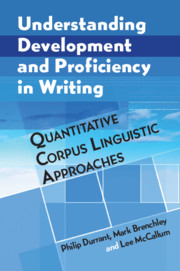Although Korean language education is experiencing rapid growth in recent years and several studies have investigated automated writing evaluation (AWE) systems, AWE for Korean L2 writing still remains unexplored. Therefore, this study aims to develop and validate a state-of-the-art neural model AWE system which can be widely used for Korean language teaching and learning. Based on a Korean learner corpus, the proposed AWE is developed using natural language processing techniques such as part-of-speech tagging, syntactic parsing, and statistical language modeling to engineer linguistic features and a pre-trained neural language model. This study attempted to determine how neural network models use different linguistic features to improve AWE performance. Experimental results of the proposed AWE tool showed that the neural AWE system achieves high reliability for unseen test data from the corpus, which implies metrics used in the AWE system can help differentiate different proficiency levels and predict holistic scores. Furthermore, the results confirmed that the proposed linguistic features–syntactic complexity, quantitative complexity, and fluency–offer benefits that complement neural automated writing evaluation.
